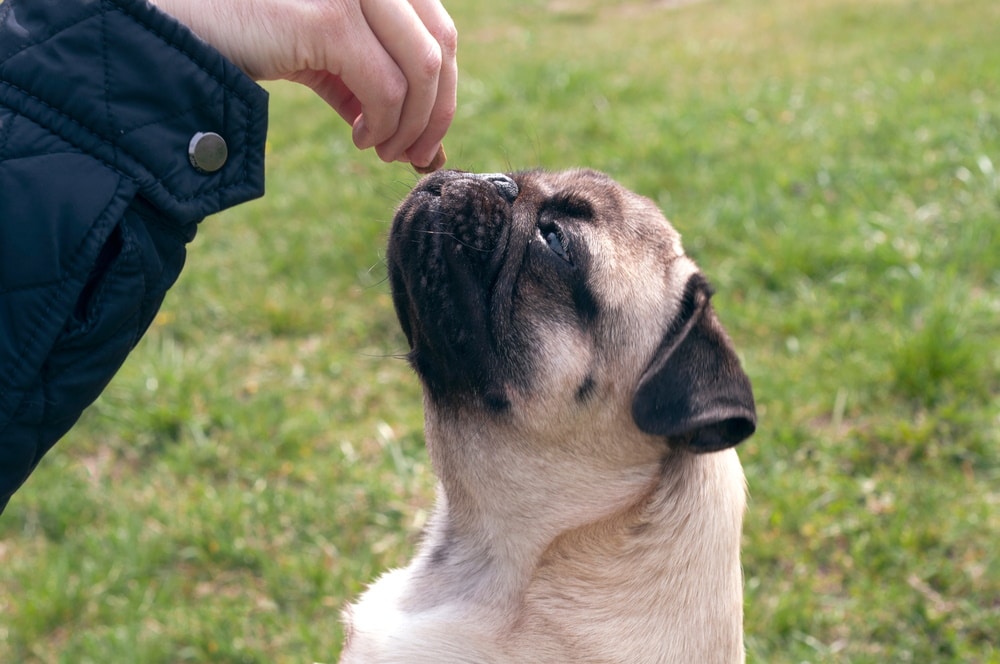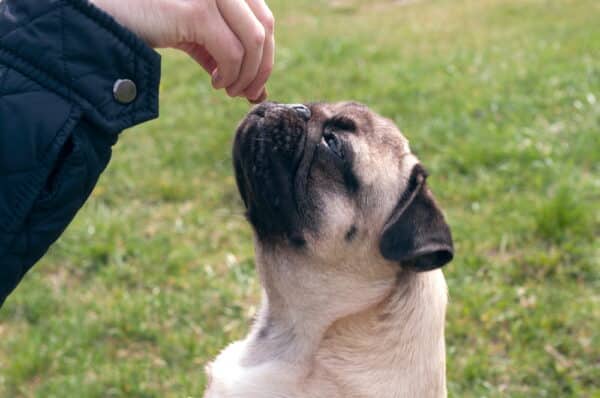I have a twelve year old pug and was told to give him Diphenhydramine HCL 25mg Phenylephrine HCL 10mg once in the morning and one time in the evening. Is this safe for my baby, because if I had anyting to do with hurting him it would devistate me. Thank you for your time and hopefully a response.
Sincerely,
Carolyn
Jacksonville Fl
I do not recommend administering phenylephrine to your dog.
You do not say why these medications were prescribed. However, I’m guessing they were recommended because your pug, like many pugs, may be experiencing increased respiratory noise or possibly increased respiratory effort that has been misdiagnosed as sinus congestion. Your vet may, therefore, have recommended a combination of an antihistamine (diphenhydramine) and a nasal decongestant (phenylephrine*) which is a standard treatment for nasal congestion in people.
If that’s the case (and, to reiterate, I don’t know with certainty that it is the case), then I disagree with the treatment. First, most pugs don’t have “sinus congestion”. They experience something called brachycephalic syndrome, and phenylephrine isn’t likely to be a good treatment for brachycephalic syndrome (although diphenhydramine may help just a tiny bit). The syndrome occurs in Pugs, Boston Terriers, Bulldogs, Shi Tzus, and other snub-nosed breeds. In these dogs the structures of the nose, sinuses, and palate become constricted. The constriction compromises air flow, which leads to the classic snorting noises that these dogs make when they breathe. In severe cases it can lead to catastrophic respiratory compromise and death — humanity has not been kind to the brachycephalic breeds of dogs.

Also, phenylephrine has a low safety margin. Its use in veterinary medicine is generally limited to injections to treat catastrophic shock. It also can be useful for inducing certain types of heart arrhythmias or fibrillations in experimental settings. I generally avoid medications that can cause fibrillations unless I have a really good reason to use them, and I’m guessing that your dog’s situation does not warrant the use of the phenylephrine.
The diphenhydramine is a safer medication, but I’ll bet it won’t do much. If your dog is suffering from brachycephalic syndrome your best bet is to keep him thin, keep him quiet on hot days, and, as a last resort, consider surgery to widen the nostrils or remove some of the excess tissues in the back of his throat.
*Pseudoephedrine was formerly the nasal decongestant of choice in the USA. It has become virtually impossible to purchase because it is a precursor to methamphetamine. Now that pseudoephedrine is no longer readily available, I’m sure you’ve noticed that the USA no longer has any problems with meth whatsoever. Like every government plan, the abolition of pseudoephedrine has worked perfectly!
Feaatured Image Credit: Yekatseryna Netuk, Shutterstock









